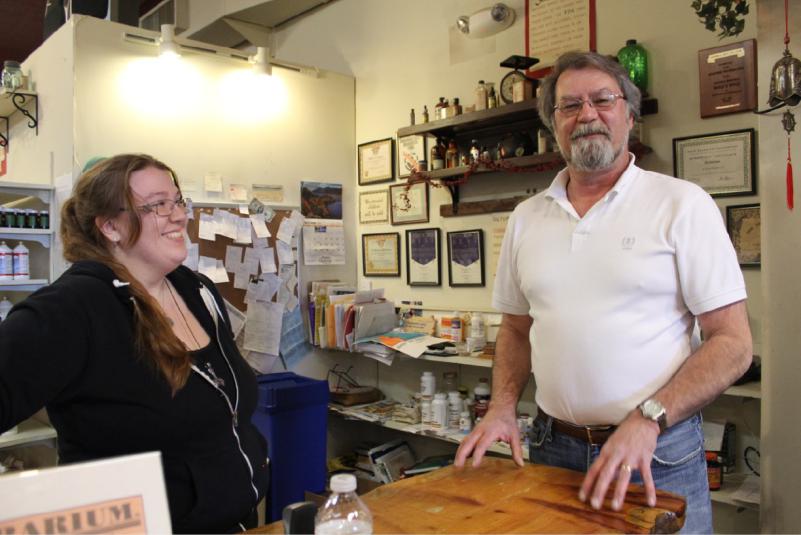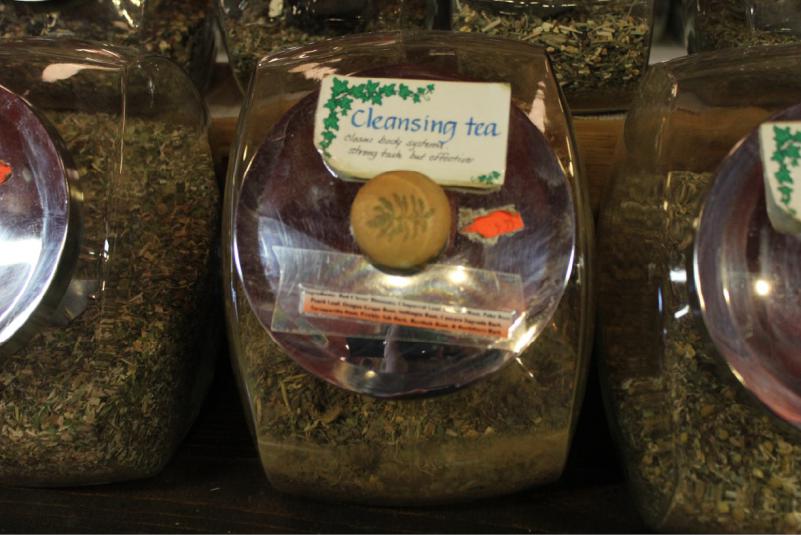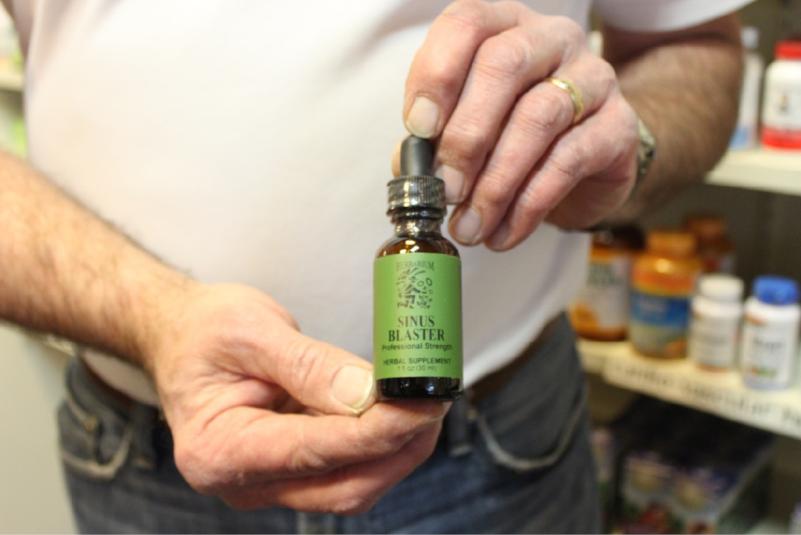As winter’s first swells swirl in, you’re likely breaking out the humidifiers and heating pads and thinking about how best to bolster your immune system for the season. We’ve all heard about flu shots and DayQuil, but there’s a lot more you can do when it seems like everyone you meet is coughing and sniffling. Here’s what some of the Valley’s alternative health professionals had to say about beating the cold and flu season.
Prevention
While their preferred remedies vary, integrative medicine practitioner Charles Brummer of Northampton, energy healer and clinical aromatherapist Katherine Harris of Northfield, Greenfield-based yoga instructor and wellness advisor Molly Kitchen and acupuncturist and Chinese medicine practitioner Jennifer Nery of Northampton, agree that the surest way to prevent sickness is by taking care of yourself in the first place.
Eat healthily. Sleep sufficiently. Exercise. Be happy — do things you enjoy. Reduce stress.
“Those are the things that work for everybody,” says Brummer.
Nery and Harris say that regular acupuncture and reiki reduce bodily tension and promote overall health, which stabilizes the immune system and keeps the ailments at bay. Energy expended on stress reduces the amount of energy the body could be using to stay healthy.
Often, a patient will have a particular vulnerability — frequent bronchitis for example — which the healers will work to strengthen, hitting corresponding acupressure points in regular sessions.
“It’s not just here, you have the flu, take this drug — it’s more about where you’re at,” says Nery. “People who come to see me regularly — I’m not going to say they never get sick — but they seem to skate by with milder symptoms.” Herbal remedies aren’t just for you, they can be for your house, too.
Keeping a home clean is a good way to prevent many germs from spreading, but Harris and Jonathan Evans, herbal information specialist and co-owner of the Herbarium in Chicopee, say over-the-counter cleansers aren’t getting the job done. Chemically enhanced sprays and sanitizers, like Clorox aerosols, are made with factory precision to carry the same potent ingredients at the same strength. That level of consistency, Evans says, enables pathogens to adapt, overcome the products, and turn into “superbugs.”
“Each essential oil is different, so it’s harder for [the pathogens] to mutate as they do with chemical products,” Harris says.
Harris recommends using a mixture of essential oils such as tea tree, lavender, eucalyptus, lemongrass and rosemary. Put 20-40 drops of your own mixture into a spray bottle with every two ounces of water. Shake well. Spray to sanitize against airborne pathogens, or spray onto unscented wipes — available in most stores — for use as a surface sanitizer.
Fighting off a bug
When people around you are sick or if you start feeling sick yourself, Nery says to avoid sugar and do aerobic exercise, as strengthening the lungs also strengthens your defensive qi — the word for energy in Chinese medicine. She also says to take Yin Chiao — an anti-viral and anti-bacterial that has long been a staple in Chinese medicine.
“I go with the things that have been around for 2,000 years,” says Nery.
Brummer swears by Proboost — a supplement with thymic protein A intended to “boost” the immune system. He says he’s been practicing medicine for 40 years and has never seen anything work as well as Proboost for the immune system.
Evans says he often suggests a combination of Vitamin C — widely proven to have immune boosting effects — and elderberry — a powerful and delicious anti-bacterial and anti-viral. For those particularly susceptible to pathogens, Evans recommends Buried Treasure’s Prevention ACF, a liquid serum. It is a combination of elderberry, zinc, olive leaf, astragalus root, Echinacea, and medicinal mushrooms. Evans says his elderly mother used to get sick every year despite getting flu shots, but after she started taking the product, never got the flu again.
Echinacea, a well-known immune modulator, got mixed reviews within the group. Nery says she no longer recommends it as it has “fallen out of favor.” Evans recommends taking Echinacea for four days at a time as a precaution or at the onset of illness, then taking at least three days off before taking it again. Kitchen recommends it, though cautions it is often used ineffectively.
“I often think it’s overused,” Kitchen says. “But it’s great for getting the immune system up and out there to fight pathogens — it’s just that vigilance is difficult to maintain.” Kitchen also suggests using tulsi, astragalus, elderberry, and medicinal mushrooms for cold weather maintenance.
When sick
Once a sickness has clearly caught hold, the practitioners recommend a separate set of remedies. Nery says taking Gan Ling Mao, a multi purpose cold treatment that strengthens the body’s ability to respond. She also says highly fermented cod liver oil, an anti-inflammatory, keeps the reaction to the invaders “in check.” To soothe and loosen mucus in the nasal passageways and respiratory system during a cold or flu, Harris suggests putting a few drops of eucalyptus on a washcloth and taking it in a hot shower, putting it on the shelf and allowing the aroma to mix with the steam.
For stubborn sinus and lung congestion, Evans sells a potent tincture called the “sinus blaster.” The eye-watering mixture is not for the faint of heart. It contains horseradish, Echinacea, goldenseal, spilanthes herb, elderberry, garlic, cayenne, peppermint, and licorice root, among other items.
“This stuff will open you up down through your toes,” Evans says.
Another potent mixture that Kitchen recommends for fighting off symptoms is a home remedy commonly referred to as “fire cider,” which can be made with apple cider vinegar, onion, garlic, cayenne, and ginger. Many local stores now sell their own version.
She also recommends taking that sick day when you feel an illness coming on. Sometimes that one day off can save you from taking a week off later.
“If we can be more mindful of our bodies on a daily basis you’re less likely to get sick,” says Kitchen. “The cool thing about alternatives is a lot of it is about common sense and getting back to basics.”•






